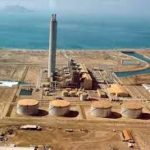 The Government of Pakistan (GoP) and Independent Power Producers (IPPs) have reportedly reached an amicable solution with regards to settlement of overdue receivables, estimated at Rs450 billion, in three installments payable in January, June and December 2021. This is in contrast to settlement timeline of 3 years which was proposed by GoP earlier. The catch however is, each installment is expected to be paid one third in cash and the remaining two thirds in the form of T-bills. Assuming 33% settlement of receivables in cash, analysts expect the payouts to still remain sporadic as IPPs manage their liabilities. HUBC and KAPCO’s liabilities stand at 109% and 49% of outstanding receivables, indicating better liquidity situation for the latter. Meanwhile, amongst Nishat IPPs, NPL seems to best placed, with liabilities amounting to 33% of receivables. The GoP and IPPs are expected to fine tune other details in meetings to be held between 4th to 6th January 2021.
The Government of Pakistan (GoP) and Independent Power Producers (IPPs) have reportedly reached an amicable solution with regards to settlement of overdue receivables, estimated at Rs450 billion, in three installments payable in January, June and December 2021. This is in contrast to settlement timeline of 3 years which was proposed by GoP earlier. The catch however is, each installment is expected to be paid one third in cash and the remaining two thirds in the form of T-bills. Assuming 33% settlement of receivables in cash, analysts expect the payouts to still remain sporadic as IPPs manage their liabilities. HUBC and KAPCO’s liabilities stand at 109% and 49% of outstanding receivables, indicating better liquidity situation for the latter. Meanwhile, amongst Nishat IPPs, NPL seems to best placed, with liabilities amounting to 33% of receivables. The GoP and IPPs are expected to fine tune other details in meetings to be held between 4th to 6th January 2021.
The first tranche of circular debt clearance entailed 20% of Rs200 billion of cash injection to IPPs (Energy Sukuk-I issued in 3QFY19), transpiring into 10-30% settlement of receivables of HUBC, KAPCO, NPL and NCPL. HUBC and KAPCO mostly used the settlement amount to retire payables towards PSO, while the latter also paid out Rs4.5/share as dividend during FY19. Nishat IPPs, on the other hand, utilized approximately half of the cash received to retire short term borrowing, and paid out dividends after a dry spell since FY16. Following Energy Sukuk II in June 2020, NPL, LPL and PKGP continued piecemeal payouts in line with capacity payments received, while NCPL skipped payouts in FY20, as well as 1QFY21, most likely on the back of working capital requirement and hefty short term borrowing. While LPL and PKGP also had comparable liabilities, low working capital requirement enabled them to pay decent payouts in past 12 months. HUBC surprised the market with Rss4.0/share payout in 1QFY21 after a dry spell over FY19-20.
HUBC and KAPCO must be seen in a different context. CY21 may witness further progress of ongoing deal between HUBC management and the GoP for sell-off of 1,200MW Base plant for a transaction price of Rs65 billion, where PPA is set to expire in FY27. While there are lots of ifs and buts, back of the envelop calculations and sensitivity analysis suggests HUBC may be able to weather through the current uncertain times (SoTP excluding Base plant comes at Rs110/share). On the other hand, KAPCO’s PPA is up for expiry in June 2021, with potential extension in pipeline (reportedly for 5-7 years based on hybrid model – “Take and Pay’ as well as ‘Take or Pay’). Similar to HUBC, KAPCO’s receivable settlement may not be as straight forward as for Nishat IPPs, given impending PPA expiry as well as Rs27 billion of liquidated damages still being a sub-judice matter.